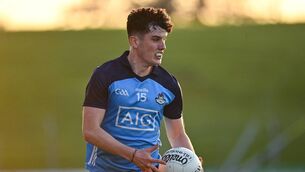Enda McGinley issues stark warning over dangers of GAA attacks

A former three-time All-Ireland winner who works as a Clinical Specialist Physio in the Trauma and Orthopaedics ward in Craigavon Hospital, has insisted that a ‘one-punch fatality’ is inevitable on GAA playing fields if the current cycle of violence is not halted.














